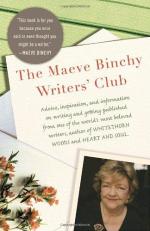|
This section contains 809 words (approx. 3 pages at 300 words per page) |

|
SOURCE: “A Dublin Commedia dell'Arte,” in Washington Post Book World, Vol. XXVII, No. 9, March 2, 1997, p. 5.
In the following review of Evening Class, Zuravleff argues that—although Binchy is a skilled author—the threads between the different stories in the novel are weak.
I read [Evening Class] without ceasing—even going so far as to weight it open with a bag of beans at the breakfast table—which explains why I feel a bit highbrow about criticizing it. Obviously, capturing and sustaining a reader's attention require talent, and Maeve Binchy, in her 11th book, Evening Class, shows herself to be a gifted storyteller. If it is true that subjects choose their writers rather than the other way round, then these subjects were lucky in their choice. Poor or rich, quick- or slow-witted, ambitious or phlegmatic: Each member of the ensemble cast clearly has the author's affection, and rightly so...
|
This section contains 809 words (approx. 3 pages at 300 words per page) |

|


